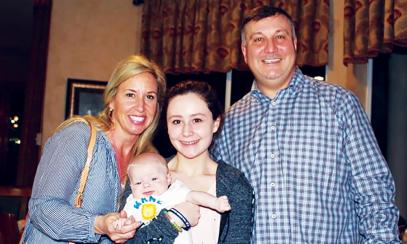
Grieving the Loss of a Pregnancy
How does a mother’s heart find peace after losing a baby before birth? A father’s heart also mourns. What does pregnancy loss do to marriage? And where is the Church in all this?
For those who have experienced the loss of a loved one, the holiday season can be difficult. Grieving a baby lost before birth may make it hard to celebrate the birth of baby Jesus. All those images of Mother and Child! Maintaining a mask of holiday cheer can be draining. Because there is so much silence surrounding miscarriage, this secret sorrow during the most wonderful time of the year can be especially isolating. I’ve talked to moms at playdates and to colleagues in ministry meetings who all agree that the Church should be a place where grieving parents can look for help after pregnancy loss. My heart goes out to all moms and dads whose arms ache to hold their little ones.
By opening a conversation about this, my hope is that we can be better equipped to comfort our sisters and brothers in the Church when we hear their sad news.
Cassandra Blomberg talks about the danger of grieving pregnancy loss in isolation in a TedTalk posted on the Infertility and Pregnancy Loss section of the Archdiocese of Seattle’s Marriage and Family website. For the 25% of pregnant women who suffer the loss of their baby before birth, there can be long-lasting consequences for them and their later children from the common emotions of guilt, heartbreak, confusion, fear, and grief they suffer if these emotions are not resolved with adequate care. One third of women continue to suffer depression a year after their miscarriage. Later children may suffer attachment problems. Giving birth to a healthy child after pregnancy loss does not heal the pain of miscarriage, and gestational age does not correlate with the amount of grief a parent feels. Losing a baby at eight weeks along hurts just as much as a stillbirth at eight months.
There are some words and phrases that can make mothers feel worse. Even the very word miscarriage implies that the mother did something wrong, that she failed somehow. As blogger and online entrepreneur Jenna Kutcher expresses it, “No, I did not mis-carry my baby. In fact, I held onto that life with every fiber of my being.” Jenna and Cassandra both went through miscarriages themselves. They both list examples of the self-blaming thoughts that plague a mom’s mind: “Maybe I overdid it in my exercise class,“ “Maybe it was because I ate that cheese.” The fact is, in the overwhelming majority of cases, it was not anything the mom did.
According to Jenna and Cassandra, there are several types of phrases well-meaning friends should never use: basically, anything along the lines of “There’s a silver lining,” “Well, you can try again to have another,” “Something must have been wrong with the baby,” or “God needed another little angel in heaven.” All these responses minimize the loss and dismiss the real emotions accompanying it. Instead, express empathy, perhaps with something like, “I am so, so sorry for your loss.” Ask how they are feeling. Let them know you are thinking about them and their baby.
The Marriage and Family website for the Archdiocese of Seattle lists ministries that can help. Since marriages can suffer, the Catholic author of A Blog About Miscarriage (ablogaboutmiscarriage.blogspot.com), recommends Grieving Together: A Couple’s Journey Through Miscarriage, by Laura Kelly Fanucci and Franco David Fanucci. The more we learn about how to help, what to say and what NOT to say, the better we can show love and support to the moms and dads who need it.
The church walks with mothers and fathers in their grief. As the Body of Christ, we need to be equipped to accompany moms and dads on this road and reassure them that they do not walk it alone.



